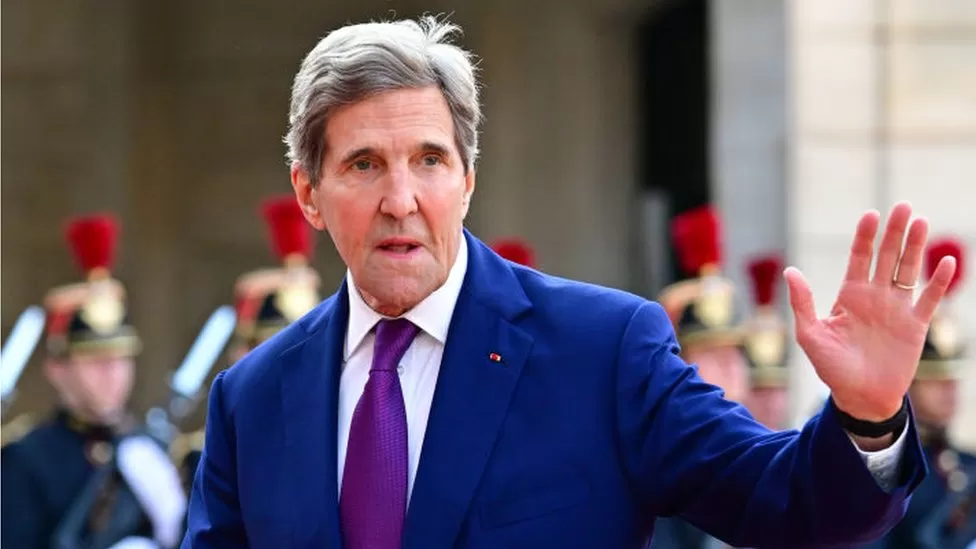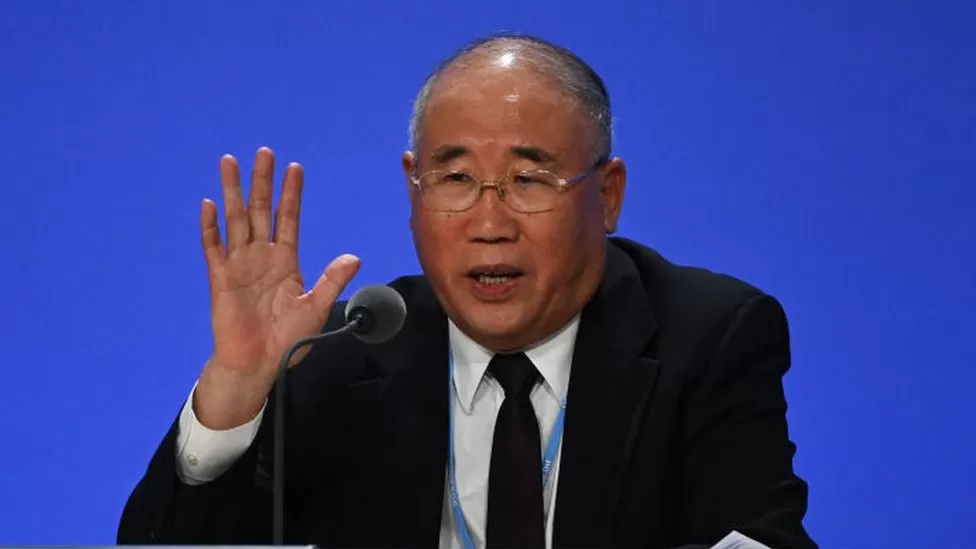Can US and China set aside rivalry for climate action?

Whether the world’s greatest superpowers and polluters can dispel diplomatic tensions in time to focus on climate goals will be the main question as John Kerry touches down in China.
As the US seeks to restart stalled relations with Beijing, Mr Kerry, the U.S. special envoy on climate, is the latest top official dispatched from Washington.
During his four-day trip, he will meet his Chinese counterpart Xie Zhenhua and other officials. Mr Kerry’s office says he wants to engage China on “increasing implementation and ambition”, and ensuring COP28, the UN climate change conference, runs smoothly.
Despite the fact that their meeting is unlikely to result in any concrete decisions, it is expected to serve as a conversation starter. Their common challenges will likely be accelerating the transition to clean energy and reducing carbon emissions.
According to one estimate, China alone makes up more than half of the world’s renewable energy investment.
However, they are also the world’s two largest carbon emitters, making them the “G2” of energy consumption, energy use, and pollution, according to University of California, Berkeley energy professor Dan Kammen.
The BBC’s Newshour program reported that both were taking major steps, but that neither had actually seen a reduction in emissions.
Contradictory moves
There is still a struggle between the demands of economic growth and the reduction of emissions, resulting in contradictory moves that have drew criticism from environmentalists.
The Chinese government appeared to be keen on reducing coal dependence not so long ago.
Xi Jinping announced carbon neutrality goals in 2020 after a steady increase in clean energy infrastructure in previous years. Increasing smog in Beijing and other cities had triggered widespread public anxiety, prompting authorities to gradually shut down coal-fired power plants.
What we need to know about China’s climate policy
Blackouts have plagued the country since then, mostly caused by the slowdown in coal power or severe droughts affecting hydropower production. Power demand has increased as China’s factories increase production following the collapse of the Covid economy, both domestically and globally. Heat waves – like this summer’s – and cold snaps have also contributed to higher electricity consumption.
In recent years, China has placed a greater emphasis on energy security. In contrast to wind and solar energy, coal power is seen as more reliable, because it is less intermittent.

Climate issues could also be used by both sides in broader trade and political negotiations.
The Chinese government would be reluctant to give in to the US given the current state of their relationship, according to Li Shuo, Greenpeace East Asia’s senior global policy advisor.
Mr Kerry and Mr Xie could take advantage of the relatively calm period to separate their bilateral relationship from their climate conversation.
According to experts, both countries must put aside their rivalry to address the climate crisis. It is possible that we will see a return to the amity seen at the 2021 COP meeting, when they announced a surprise joint agreement to reduce emissions.
“You could still make an argument to decouple your trade, so long as you are willing to bear the cost. However, you cannot argue to decouple climate engagement, because the US and China cannot solve this issue alone. “This is a global issue that requires all hands on deck,” said Mr Li.
It was agreed by Prof Kammen. “If we don’t fix this, all our disputes about human rights and things are important – but they are like rearranging deck chairs on the Titanic,” he said.
